Can social investment programmes reverse the trend of Nigeria’s poverty?
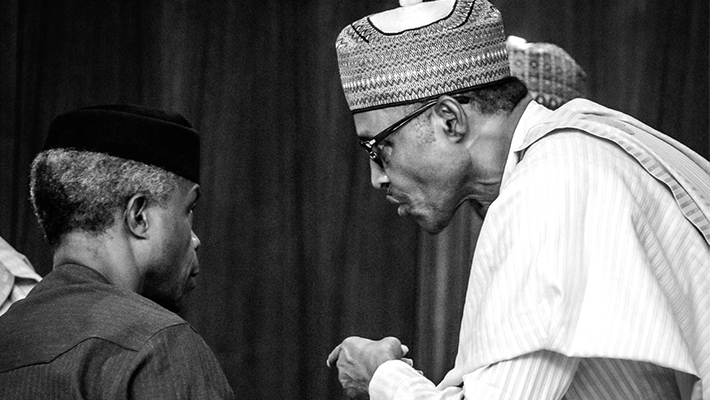
That there are many poor Nigerians is a fact known to many. Sadly, Africa’s biggest economy has been struggling to put her acts together despite being one of the largest producers of crude oil in the continent.
It has become a metaphor for the paradox of plenty that has been attributed to the curse of the endowment of natural resources. When former Venezuelan oil minister, Juan Pablo Perez Alfonso, exclaimed that oil is the devil’s excrement, back in the days, it appears he had countries like Nigeria in mind. Unsurprisingly, the country has become a host to the largest number of poor people in the world.
According to Nigeria’s National Bureau of Statistics (NBS) about 40 per cent of the population or almost 83 million people live below the country’s poverty line of N137,430 ($381.75) per year. The unemployment rate increased to 33 per cent in the last quarter of 2020. With a Gini coefficient of 35.1.
Nigeria is one of the eight countries with the highest inequality in income distribution in the world. Simply put few people have so much and majority of others have too little. The country also has a scary public debt profile of N32.915 trillion and the second-highest burden of stunted children in the world. With 42.5 per cent youth population, the unemployment rate is now around 27 per cent as of 2020 and the number of out of school children hovers around 6.95 million according to official sources.
The mounting urgency to protect the poor and the vulnerable.
Expectedly, incidents of violent conflict, kidnapping for ransom, student abduction, armed robbery and terrorism are increasing across the country. The security agencies appear overwhelmed. Cries of marginalisation and demands of secession rent within the country from citizens and groups who feel a deep sense of exclusion.
There is growing inter-ethnic intolerance, mutual suspicion and tension within groups who hitherto co-existed in harmony. Street gangs and cult groups continue to brazenly kill, rob and rape innocent citizens in urban slums especially in but not exclusively in Lagos and Port Harcourt. Criminal herdsmen, unknown gunmen and bandits appear to be on a national rampage.
Proliferation and stockpiles of small arms and light weapons continue in many communities. ‘Ungoverned’ spaces thrive where informal forms of authority supposedly provide conducive breeding ground for these illicit activities. During the recent #ENDSARS protests, young people across the country expressed anger against police brutality which was hijacked by criminals and miscreants who converted it into opportunities for massive looting and arson.
As a result, many lives were lost and properties worth billions of naira were destroyed. Observers insist that these disturbing incidents may be unrelated to the rising population and growing poverty. The picture appears to be that of a ticking time bomb waiting to explode and submerge the West African sub-region.
A glimpse into the social protection arena in Nigeria
Social protection has been widely acknowledged as a multi-sectoral and multi-disciplinary approach to poverty reduction through articulating priorities of government towards sustainable development. It appears to be one of the paths through which President Buhari’s administration wants to follow to fulfil its promise to lift 100 million Nigerians out of poverty.
Interestingly during his 2021 Democracy Day speech, the President affirmed that 32.6 million poor persons identified through the Nigerian social register across 708 local governments are already benefiting from the National Social Investment Programme (NSIP) while 10.5 million individuals have already been lifted out of poverty in the last two years.
Many Nigerians insist that there is little evidence to justify the President’s claims. Findings from International Centre for Investigative Reporting suggest that about 105 million Nigerians lived in poverty from the third quarter of 2019 and according to World Poverty Clock these numbers have been far exceeded due to the pandemic. The rising poverty level in Nigeria has been attributed to what many describe as President Buhari’s largely inconsistent and unimpressive economic policies.
Will a New Social Protection Policy deliver hope?
Although social protection has been discussed in government circles in Nigeria since 2004, with a chapter dedicated to it in the Vision 2020 document, little has happened. Apart from sporadic programme interventions that were implemented, there was no serious policy commitment about it until 2016.
According to the policy created that year, social protection is a mix of policies and programmes designed for individuals and households in order to reduce poverty and socio-economic shocks by promoting and enhancing livelihoods, life and dignity. That policy has since expired and a new one is said to be in the making.
Reportedly, the recently introduced National Social Investment Programme focused on a more equitable distribution of resources to the vulnerable population including women, youth and children. So far, the government claims to have implemented the skill acquisition scheme for unemployed graduates (N-Power), micro-lending programme otherwise known as Government Enterprise and Empowerment Programme (GEEP), Conditional Cash Transfer Programme and the National School Feeding Programme.
Official government sources insist that 12 million households have so far benefitted from the programme in the last five years. However many critical voices including the wife of President Buhari herself contend that although the programme is lofty in design, it was poorly executed in many states. Independent monitors including select civil society groups like the African Network for Environment and Economic Justice (ANEEJ) based in Benin went around the country to track some of the funds to ensure that those who claim to have benefitted from the programme are real and verifiable.
Fragmented efforts and political differences may hinder progress
Despite these well-meaning efforts, programme interventions remain fragmented as political differences and competition between federal and state governments remain a barrier. Poor donor coordination and the existence of multiple actors might have also contributed to hinder the pace of social protection programmes.
Popularity seeking politicians tend to get involved only when it advances their political interests while citizens consider what they get as their own share of the national cake. Many of these interventions that come as loans are hardly refunded, making the sustainability of such programmes unlikely. Furthermore, the timing of the cash distribution in 2019 just before the election was perceived by critics as a ploy to influence voters to support President Buhari’s re-election bid.
In the end, transparency and fairness are often compromised further eroding the trust between government and citizens. The criteria and process of selection of beneficiaries remain foggy and there are valid complaints that the distribution pattern may be skewed to benefit some regions and not others. Few civil society groups have developed the requisite capacity to monitor these disbursements to ensure that the poorest of the poor are the ones that benefit from them.
Can these Social Investment Programmes lift Nigerians out of poverty?
Despite the emerging faith in social protection initiatives, some observers prefer to describe it as mere western orthodoxy with little evidence of results. They insist that cash distribution to the poor ($11 monthly in the case of Nigeria) is mere window dressing that cannot provide the poor with the opportunity to participate productively in economic life.
At best, these critics insist that recipients will survive for a few days or weeks only to fall back into their original situation. Some Nigerians describe the social register as phantom and the cash transfers, a way of siphoning money in the name of the poor. Hamzat Lawal, founder of Follow the Money insists that the method adopted paved way for endemic corruption as Nigerians were defrauded and short-changed through the process.
Those who support the idea claim that it raises the standard of living of beneficiaries alongside giving them a genuine sense of inclusion. Countries like Ghana and Tanzania that have recently reported a decline in their poverty rates continue to implement World Bank assisted social protection programmes as part of their poverty reduction measures.
However, the most recent Chinese example of how the number of poor people dropped from 98.99 million in 2012 to 16.6 million in 2018 is worth studying. The Chinese government reportedly introduced a cocktail of policies that continuously lifted 10 million people out of poverty for seven consecutive years in order to move from an agrarian backwater to an industrial powerhouse.
The policy landscape needs to be fortified with an enabling legislation
The provision of an enabling policy landscape to guide social protection programmes in Nigeria is a useful indicator of positive political will. In addition, a budgetary provision of N765 billion has been made for the programme in the 2021 fiscal year.
These efforts though bold and commendable, do not appear sufficient to enable the country to overcome its current overwhelming poverty burden. With widespread conflict, no one can dismiss fears that any rupture in Nigeria could devastate the sub-region.
The country needs to urgently bring together the right partners, streamline internal processes within government and back them with enabling legislation. Furthermore, evidence of fair, equitable and transparent allocation of these resources across the country should be publicly provided to counter the allegations of likely political interference.
Mechanisms for mutual accountability should be taken seriously to rebuild public confidence for citizens to trust government sincerity and actions.
Social protection programmes are useful but they are clearly insufficient to eradicate poverty. Nigerian government appear to be carrying a watering can but what is needed is the fire brigade.
Dr Uche Igwe is a Visiting Research Fellow at Firoz Lalji Institute for Africa at the London School of Economics and Political Science (LSE). He can be reached at: u.igwe@lse.ac.uk.
We have recently deactivated our website's comment provider in favour of other channels of distribution and commentary. We encourage you to join the conversation on our stories via our Facebook, Twitter and other social media pages.
More from Peoples Gazette

Politics
Katsina youths pledge to deliver over 2 million votes to Atiku
“Katsina State is Atiku’s political base because it is his second home.”
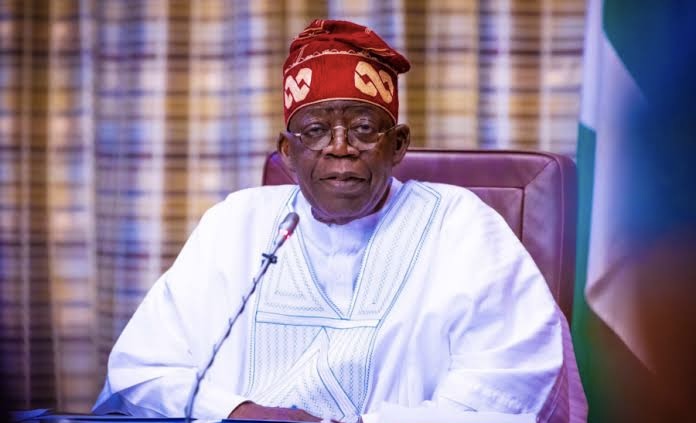
NationWide
Nigeria positioned to power clean energy future of world: Tinubu
Mr Tinubu expressed his firm commitment to improve the developmental partnership between the European Union and Nigeria.

Africa
Benin, Liberia, Sierra Leone roll out malaria vaccines
With the announcement on World Malaria Day, the number of African countries incorporating the vaccines into their childhood immunisation programmes increased to eight.

NationWide
Group urges FG to decongest custodial centres after Suleja jailbreak
”We also call on the public to pay more attention to issues concerning corrections in Nigeria.”
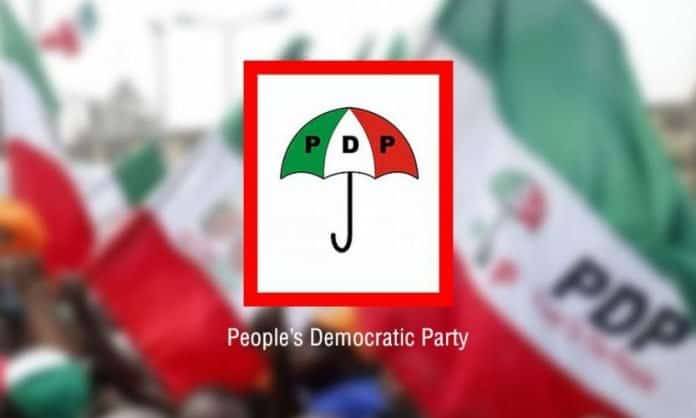
Politics
PDP unveils 200-member campaign council for Edo 2024 guber election
The advisory council has seven eminent members of the state.
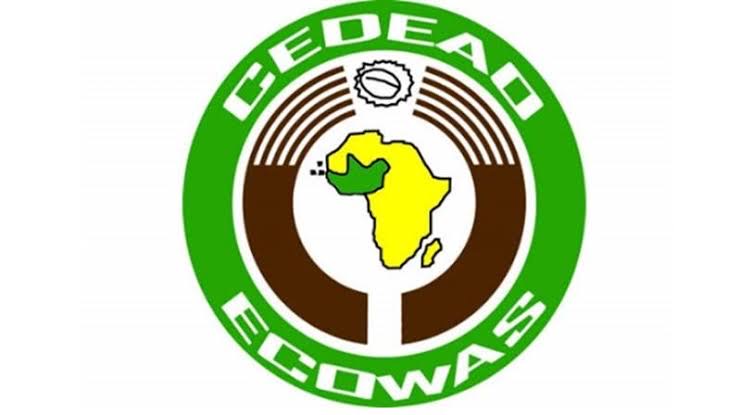
Africa
ECOWAS moves to tackle drug abuse in Sierra Leone, other countries
ECOWAS said the workshop was also to support efforts to tackle drug abuse and provide resources and strategies for member states, particularly Sierra Leone.
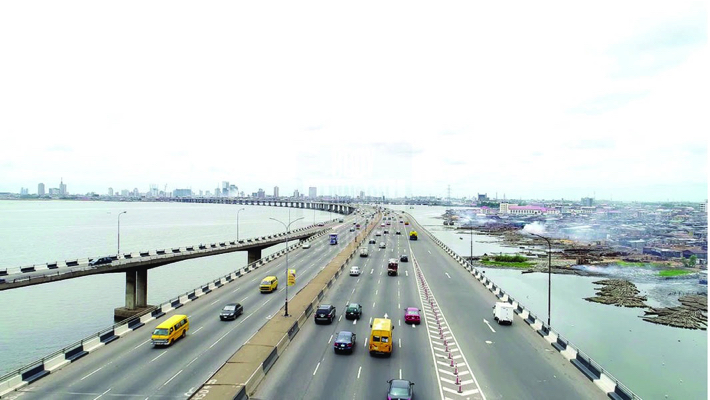
Lagos
FG to resume resurfacing of Third Mainland Bridge: Official
She said that the exact dates for the renewed construction would be announced soon.








